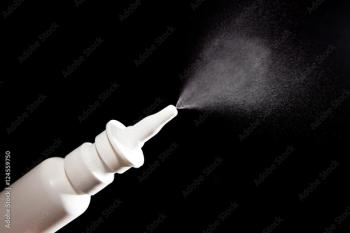
On the Shelf: Cough, Cold, and Flu
Joanna Lewis, PharmD, MBA, discusses practical considerations when selecting over-the-counter medications to treat common cough, cold and flu symptoms.
Joanna Lewis, PharmD, MBA: Hello, and welcome to this episode of Pharmacy Times’® On the Shelf. In this series we are exploring information about a variety of over-the-counter products that both affect consumers and provide opportunities for pharmacists to share their insights.
Products featured in this series come from the Pharmacy Times® OTC Guide®. Now in its 25th year, the guide features pharmacists’ top recommended products and brands, covering more than 800 specific products from 148 categories based on a national survey. Pharmacy Times® also partners with U.S. News & World Report, an authority in rankings and consumer advice, to bring these pharmacist recommendations to consumers nationwide.
With that said, let’s see what’s on the shelf.
Today, let’s talk about cough, cold, and flu products. The common cold leads to more health care provider visits and absences from school and work than any other illness each year. More than 200 viruses contribute to the common cold, and people in the United States suffer from 1 billion colds annually.
The common cold and the flu are spread by airborne droplets and are more prevalent in fall and winter months for several reasons: people are indoors more and in closer proximity, schools are in session, and lower humidity causes dry air passages and makes them more susceptible to viruses. Symptoms of the common cold are runny nose, congestion, scratchy or sore throat, sneezing, mild fatigue, headache, and low-grade fever. Symptoms of the flu can be similar to a cold; however, the flu more commonly presents with a higher fever, body aches, fatigue, and headache. Mild to moderate cases of the cold and flu are usually treated with rest, fluids, and symptom management with OTC medications.
Based on the 2021 OTC Guide® provided by Pharmacy Times®, it is estimated that there are over 2,395,000 recommendations made by pharmacists for daytime cough, cold, and flu combination products each month. That’s a lot! Among the recommendations for daytime cough, cold, and flu combination products, DayQuil was the brand pharmacists recommended most often. Also from the OTC Guide®, it is estimated that there are over 2,949,000 recommendations made by pharmacists for nighttime cough, cold, and flu combination products each month. Among nighttime cough, cold, and flu combination products, NyQuil was the brand pharmacists recommended most often.
Whether you are looking for a cough, cold, or flu combination product, it is important to pick a product based on your symptoms. Most products are specific for cough; or cough and runny nose; or cough, runny nose, and fever. There may be several formulations for each brand. For example, Dayquil’s cold and flu product contains acetaminophen, dextromethorphan, and phenylephrine, while Dayquil’s severe cold and flu product contains dextromethorphan, guaifenesin, and phenylephrine.
If you are looking for a product that targets cough only (Delsym, Mucinex DM, and Robitussin were the top picks), some of these, like regular Delsym, will have dextromethorphan only (a cough suppressant); some, like regular Mucinex, will have guaifenesin only (an expectorant that breaks up mucus); and other products will contain both dextromethorphan and guaifenesin (Mucinex DM and Robitussin DM).
For congestion, Sudafed and Claritin D are the top recommended nasal decongestants with pseudoephedrine as the active ingredient. Phenylephrine is also a decongestant that is in many cough and cold products. If you or your patient has high blood pressure, avoid pseudoephedrine, and look for a decongestant like chlorpheniramine in Coricidin or a product labeled for high blood pressure or ask your pharmacist for a recommendation. There are also decongestants that come in nasal sprays, with Afrin being the most commonly recommended.
To dry up a runny nose, choose a medication with an antihistamine, such as Claritin, Zyrtec, or Allegra. These products should be fine for daytime use. Chose a product like Claritin, Zyrtec, or Allegra-D when you need the combination of an antihistamine (dry up) and a decongestant to relieve nasal congestion.
Nighttime formulations will have a sedating antihistamine, like diphenhydramine (Benadryl) or doxylamine. These make you tired and drowsy, so it’s important that you do not operate heavy machinery or drive after taking these medications and do not use them during the day.
People with certain conditions may need to avoid some products. For example, patients with diabetes may want to pick a syrup formulation that is sugar-free. As we talked about earlier, people with high blood pressure will want to stay away from decongestants like Sudafed.
That’s it for this episode of “On the Shelf.” Thank you for watching. Keep an eye out for our next episode. In the meantime, check out more pharmacist recommendations and practical information at
Transcript edited for clarity.
Newsletter
Stay informed on drug updates, treatment guidelines, and pharmacy practice trends—subscribe to Pharmacy Times for weekly clinical insights.



























